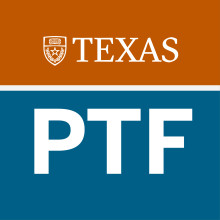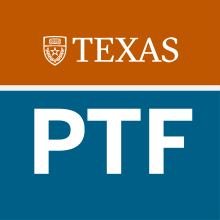Individual Fellow Initiatives

Common Ground: Strategies for Student Achievement in the Post-COVID Era
This initiative addresses the challenge of balancing student accomplishment with the necessary accommodations for student success, particularly in the post-COVID era. The project will collect empirical data from students, faculty, and advisors at the Moody College of Communication to explore how to maintain high academic standards while incorporating essential accommodations for students facing challenges such as mental health issues, food insecurity, and housing instability.

Characterizing Complexity and Frequency of Feedback Given to Students: What Actually Helps Achieve Learning Outcomes?
This project is aimed at improving learning outcomes in programming courses at UT Austin, specifically targeting ECE312 (Software Design and Implementation I) and ECE360C (Algorithms), but that can potentially be expanded to other programming courses and beyond. The project is designed to enhance students' understanding of fundamental concepts by characterizing the complexity and frequency of feedback provided during completion of assignments.

Does Increasing Course Depth While Reducing Breadth Improve Learning in College Students?
Student-centered learning strategies have been effectively used to increase academic performance and learning in students. Educators have hypothesized that course content reduction can also improve student learning. However, support for this idea is lacking. In the present project, I am planning to assess whether a content reduction strategy increases the academic performance of upper-division stem students at the University of Texas-Austin.

Artful Learning: Integrating Art into Teaching Practice
This project aims to transform academic instruction by integrating art into the classroom. We believe that art can make subjects more engaging and help students connect with the material on a deeper level. By integrating diverse forms of art—such as virtual art, music, film, theater, and more—into the curriculum, we aim to create a more interactive and stimulating learning environment while also supporting students' mental health through therapeutic art sessions.

Implementing Computational Modules into the Materials Science and Engineering Undergraduate and Graduate Curricula
The development of increasingly powerful computational resources has made computational competencies new core forms of literacy that should be formed as part of basic education across all STEM fields.

Disability Justice as Pedagogical Practice
Within social work curriculum, the topic of disability is either explicitly absent or medicalized. The lack of a rich understanding of disability as a cultural experience that intersects with other cultural experiences is concerning given our ethical guidelines of cultural competence and equity. Additionally, not only are students excluded via this omission, but so are faculty, staff, and social workers working in the field. Approximately a quarter of the population identifies as having a disability, yet our curriculum barely acknowledges their experiences.

Compassionate Pedagogy and Experiential Learning
The primary goal of this project is to enhance student engagement and participation in the learning environment, especially those who have may have been marginalized by conventional approaches to teaching. This project aims to support, encourage, and train faculty to incorporate compassionate pedagogy (CP) and experiential learning (EL) into their teaching, with the goal of promoting student connection and faculty creativity.

Building a Network of Large-Class Educational Leaders Across Campus
Each year I attend Teaching Discovery Days and Texas Teach-Up and leave motivated to try new teaching practices. The majority of the practices I observe during Texas Teach-Up, hear about at conferences, or read about in the literature need substantial adaptations to work in my large classes. Figuring out how to make new practices work well and remain manageable sometimes seems insurmountable. Discussions with others who teach large courses often provide insights and ideas, but in any given department at UT there may be just one or just a few professors who teach these large class sizes.

Building Rigorously Compassionate Syllabi: Fostering Individual Accountability and Community Care
Our project seeks to revitalize the syllabus document as a tool of inclusion. We are interested in making visible the “hidden curriculum” with which students often struggle. The syllabus language, grading and attendance policies, communication and assignment fulfillment methods, course calendar flexibility, course material formats – these can all contribute to developing personal accountability and investment in community.

Early Exposure to Data Skills in Introductory Biology Sequence
Biology continues to be seen as a field for science-interested, but math-disinterested students. However, due to the surge in data use in all biology careers, and the focus in research on sequence data, there is a strong need for data skill development in biology degree programs. Math anxiety poses a specific challenge for biology education. A suggestion to overcome this, is an early introduction to data skills in the two-course sequence of Introductory Biology.

Offering Real-World Opportunities for Students Enrolled in Statistics and Data Science Undergraduate Research
The primary goal of this community-based service project is to provide experiential learning opportunities for undergraduates interested in statistics and data sciences while supporting the broader Austin-area community. Coordinating with local organizations, students enrolled in some of our SDS courses are gaining hands-on experience in data analysis while exploring authentic contexts. This innovative and collaborative effort provides a community-based model that allows students and local organizations to co-develop and answer real-world research questions.

Teaching Law and Religion
The aim of my proposed project is then the integration of the seemingly disparate studies of law and
religion. The study of both is an important branch of comparative law and global legal history that I aim

Improved Student Evaluations of Teaching
Student evaluations of teaching (SETs) are one of the official means to gauge the performance and effectiveness of an instructor at higher-education institutions. They are often used for promotion/tenure decisions as well as to guide faculty into becoming effective instructors. But the question is whether, as currently implemented at UT Austin, SETs are reliable indicators of (a) effective teaching, and (b) long-lasting, impactful learning?

Enhancing Assessment Practices in Large Physics Courses
There exists a gap between instruction and assessment in large introductory physics courses. Recent
projects supported by the PTFs and the Texas Mindset Initiative have focused on classroom instruction and

COLA Interdisciplinary Program Instructors' Community of Practice
There are two main issues that this project hopes to address. The first is the student and instructor malaise that
has been noticed by educators and administrators across our whole campus since the return to face-to-face

Longhorn Mindfulness Project
This project focuses on mental health on campus. Specifically, the mental health and self-regulation challenges that mindfulness practices have been empirically shown to address: anxiety, depression, focus, and procrastination. There is strong empirical support for these benefits emerging around the 8-week mark of regular practice (10-15 minutes per day), which is feasible in the confines of the semester calendar.

Developing Experiential Learning in Organizations
My project, “Developing Experiential Experiences in Organizations,” assessed HDO students’ access to experiential learning
in organizations, particularly in the form of internships; additionally, our program aimed to provide more built-in
opportunities HDO students to engage in experiential learning. To gauge need, I surveyed HDO students. Results
demonstrated that many of our students were graduating without any organizational experience, especially first-generation

Sync-Up - Teach-Up - Texas Teach-Up on Demand
Educators need increased opportunities to participate in Texas Teach-Up in order to benefit from modeling teaching at UT Austin. This project will explore two specific elements of this problem. Currently you can only participate during officially scheduled time/dates, you cannot participate on-demand. This limits access to only those who can make it, or are a part of the university, during the on-schedule times and dates. Additionally, as an on-schedule event, seats have closing limits. Some people who want to participate may not be able to do so because the session is full.

The Compassion Project
Evidence from allied health fields shows that patients’ relationship with their provider is often the most therapeutic aspect of the health care encounter (Tresolini

Digital Research Apprenticeship: Projects For Intersectional Justice
Research and scholarship in Digital Humanities applies technology to humanities questions and subjects technology

Internship in the Media Industries
Internships have increasingly become a critical step in the college-to-career transition in the media industries and beyond.

Mentored Research Learning: An Evaluation
Mentored research defies the traditional higher education approach, which separates research and teaching into distinct activities. Instead, mentored research fully integrates faculty research activities and student learning. In this approach, researchers do not simply carry out their research in isolation with a paid set of PhD-level research assistants. Further, students do not simply learn from in-class lectures or more traditional out-of-classroom experiences, such as study abroad.

Student Success and Well-being
My project is designed to support engineering students primarily in their freshman and sophomore years, when they struggle the most, resulting in high failing rates. Students do not always implement the best study strategies as they transition from high school to college, and do not prioritize their self-care and well-being. College level coursework is significantly more difficult compared to high school level courses and require more critical and abstract thinking.

Podcasting as Experiential Learning in Classics
Students in pre-modern disciplines face greater challenges in finding productive and engaging avenues for Experiential Learning than students in fields whose connections to current events are more self-evident. Podcasting offers students of ancient Greece and Rome a way to connect with people outside their classrooms, both other students and interested members of the general public. It also requires them to hone their oral presentation skills and to think about how to present the same idea to different audiences, both of which are fundamental to critical thinking.

Engineering Sentences: A Cross-Disciplinary Training Program
Although Cockrell School of Engineering (CSE) undergraduates take a required engineering writing class, which I teach for Chemical Engineering, they typically struggle with writing laboratory and long-form research reports. Helping CSE students to overcome this obstacle matters because writing technical reports prepares engineering students for the writing-intensive work of a professional engineer. Faculty teaching these classes would also benefit from higher quality student work.

